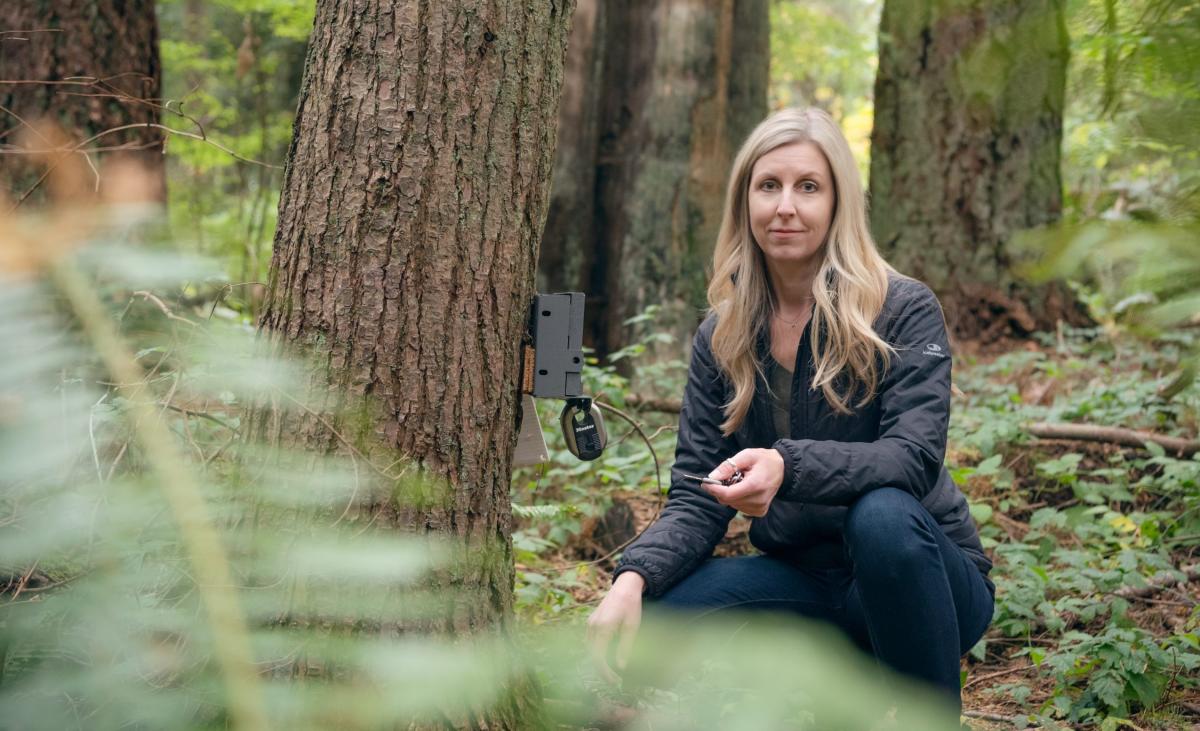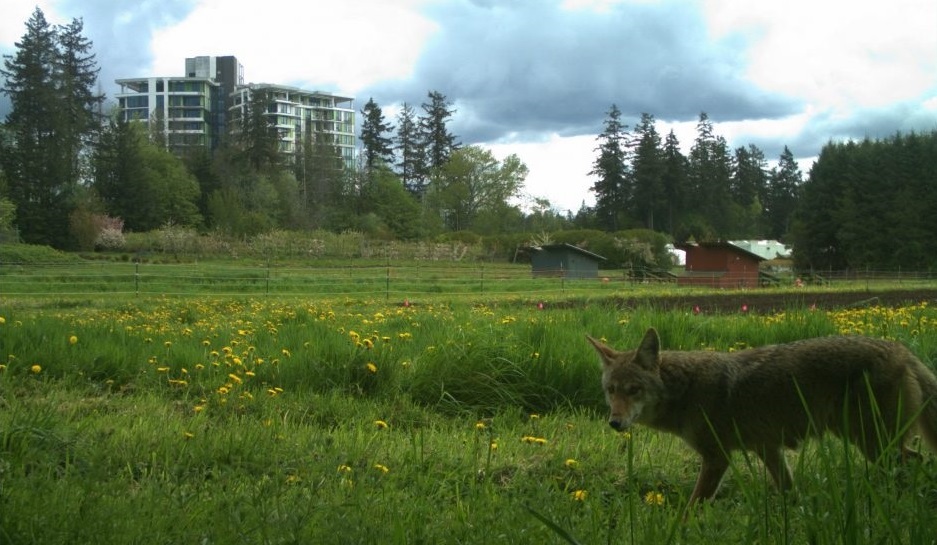
When campus activity came to a halt during the pandemic, UBC’s urban wildlife found greater freedom to move around campus. Now that students, faculty, and staff are back, research is helping establish safe and respectful boundaries with urban wildlife.
Photo credits: UBC Animal Welfare Program, UBC Faculty of Land and Food Systems.
“Coyotes are naturally timid,” says Dr. Kristen Walker, Assistant Professor of Teaching, Faculty of Land and Food Systems. “But the human-coyote boundary gets blurred when we try to feed and interact with them.” Walker partners with organizations in Vancouver to produce collaborative research that aims to identify humane deterrents and reduce conflicts with urban coyotes.

On the UBC Vancouver campus, Dr. Walker monitors urban wildlife through a camera trap program. A focus of her team’s monitoring efforts has been on a young injured coyote nicknamed Kip.
In November 2020, Kip was presumably injured from a car accident, suffering a back leg injury. Kip’s unique gait has sparked the interest of many curious onlookers on campus. Unfortunately, this has included reports of individuals feeding Kip and approaching too closely to take pictures. These actions teach coyotes and other wildlife to be less fearful of humans, which can be dangerous for everyone involved.

Dr. Walker also works closely with the Stanley Park Ecology Society’s ‘Co-existing with Coyotes’ program to track coyotes in the Greater Vancouver area. With greater public awareness around coyotes and other urban wildlife, Dr. Walker is optimistic that we can learn to better co-exist and respect the animals in our shared city spaces.